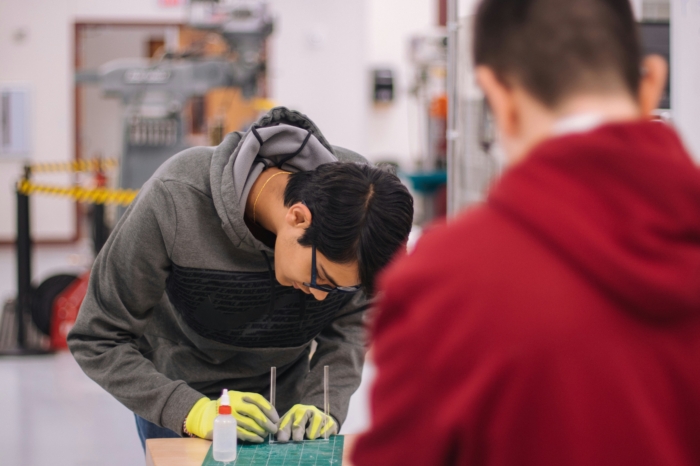Press Release: 9/15/2025
Study Calls for Expanding Access to Career Vocational Technical Education
September 15, 2025by Editorial Staff
Demand growing; shortage is particularly acute in Gateway Cities
BOSTON – Massachusetts’ budget for fiscal 2026 that includes $100 million in grants to create an additional 3,000 career/vocational education (CVTE) seats in the Commonwealth is a good start, but more should be done to eliminate the 8,100-seat shortage of CVTE seats, according to a new study published by Pioneer Institute.
“Many CVTE programs can’t accept all the students who want to attend,” said Dr. Ken Ardon, author of “Expanding Access to Career Vocational Technical Education.” “And the shortage is particularly severe in Gateway Cities, where half the applicants are turned away.”
Even as the overall number of high school students has remained flat, CVTE enrollment has increased by 2.4 percent over the last two years and 24 percent since the 2011-12 school year. Overall, Massachusetts has about 55,000 CVTE students, or about one fifth of overall public high school enrollment.
“The most recent state budget makes important progress with investments that will create 3,000 additional seats in our vocational-technical schools, which are a national model,” said Director of Pioneer Education Jamie Gass. “But voc-tech access remains uneven across Massachusetts and the job won’t be done until we eliminate the entire 8,100-seat shortage.”
The demand is a result of strong results. Despite spending half their time in career education, CVTE students perform as well on MCAS and other measures of achievement as their counterparts in traditional high schools. Although many go on to higher education, CVTE students are more than twice as likely as traditional high school students to move directly into the workforce and tend to earn more than their peers in the first 10 years after graduation.
Opportunities for career/technical education are unequally distributed across the Commonwealth. The share of students in CVTE programs ranges from zero in Nantucket and 7 percent in Suffolk County to 40 percent in Bristol County.
The Department of Elementary and Secondary Education (DESE) should investigate why students in some areas attend CVTE programs at such different rates. It may be the case, for example, that only 7 percent of public high school students in Suffolk County are enrolled in the programs because of a lack of good options. Such data would be critical in deciding how to allocate new CVTE capacity.
DESE already has the detailed student-level data necessary to evaluate how CVTE programs affect factors such as academic achievement, wages and probability of employment. The agency should conduct such evaluations.
Vocational-technical schools are about 25 percent more expensive to build than traditional high schools and CVTE students are also more expensive to educate. Dr. Ardon estimates that the additional cost of educating the 3,000 additional students Gov. Healey’s proposal would accommodate to be about $9 million annually.
The characteristics of CVTE and other Massachusetts high school students are similar. The main differences are that CVTE students are less likely to be English language learners (6 percent vs. 14 percent) and have a lower dropout rate (0.4 percent vs. 2.1 percent).
###
Ken Ardon received a Ph.D. in Economics from the University of California at Santa Barbara in 1999, where he co-authored a book on school spending and student achievement. Dr. Ardon taught economics at Pomona College before moving to Massachusetts to work for the Commonwealth of Massachusetts in the Executive Office of Administration and Finance. He has served as a member of Pioneer Institute’s Center for School Reform Advisory Board for two decades, and since 2004 has taught economics at Salem State University, where he served as chair of the economics department from 2014–2023. In 2024 he received a Fulbright Scholarship to teach the economics of education in Ankara, Turkey
About Pioneer Institute
Pioneer empowers Americans with choices and opportunities to live freely and thrive. Working with state policymakers, we use expert research, educational initiatives, legal action and coalition-building to advance human potential in four critical areas: K-12 Education, Health, Economic Opportunity, and American Civic Values.
